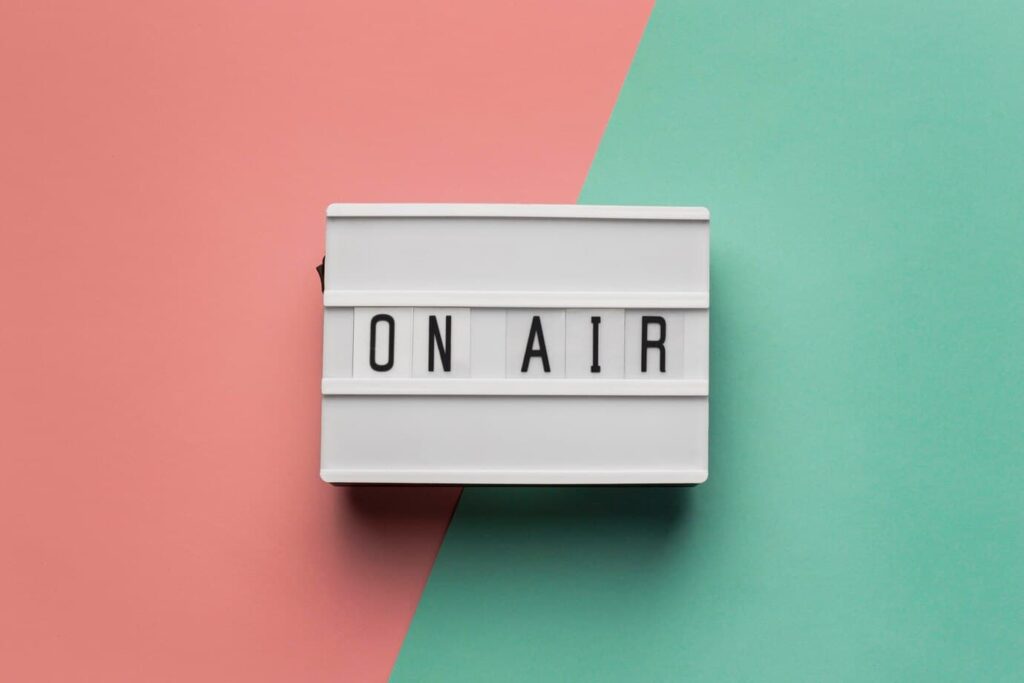In an age where online casinos dominate the digital space and gambling streams flourish on platforms like Twitch, it’s easy to forget that the relationship between broadcasting and betting began long before fiber optics and live chats. The roots of gambling in radio go back nearly a century — to a time when wireless waves carried not just news and music, but also thrilling chances to win real prizes. This strange, often overlooked chapter of media history reveals how radio became an unlikely playground for risk, reward, and regulation.
When Radio Was the Casino
During the early-to-mid 20th century, radio was the king of the living room. It wasn’t just for entertainment — it was a connection to the wider world. As the medium grew in popularity, some broadcasters began experimenting with listener interaction in ways that flirted with chance.
Radio quiz shows in the 1930s and 1940s weren’t labeled as “gambling” in the traditional sense, but many programs offered high-stakes prizes in exchange for correct answers. Sponsors and hosts would drum up tension with dramatic music and charismatic delivery, building an atmosphere that mimicked the casino floor. Shows like Pot o’ Gold offered cash prizes to listeners simply for answering their phone. It wasn’t betting per se — but the thrill of unpredictability was undeniably addictive.
More daring examples emerged in regional radio where local stations would run call-in sweepstakes, lucky-number hours, or even host live bingo sessions, encouraging listeners to tune in daily and participate with printed game cards. These formats blurred the lines between game show and gambling, paving the way for future regulation.
Legal Gray Areas and Government Crackdowns
As gambling became more regulated in the United States during the mid-20th century, radio broadcasters found themselves in a legal gray zone. The Federal Communications Commission (FCC) began to scrutinize “games of chance” on the air. Promotions that required any form of payment or purchase to enter a contest — even something as minor as mailing in a postcard — could be construed as illegal lotteries.
The result? A slow but steady disappearance of gambling-style formats from the mainstream radio dial. By the 1970s, most reputable stations had either abandoned such promotions or replaced them with clearly skill-based contests to avoid trouble with regulators.
Still, underground and pirate radio stations in some regions, especially outside the U.S., continued to run roulette-style spin-the-wheel games and phone-in jackpots — often with minimal oversight and maximum enthusiasm. These broadcasts weren’t just about winning money; they built communities of regular listeners who tuned in not for the news, but for the thrill of the spin.
Gambling Ads and the Rebirth on Airwaves

While direct gambling games on radio may have largely faded out, the 1990s and 2000s saw a resurgence of gambling content in the form of advertising. Casino resorts, poker tournaments, and eventually online gambling platforms began purchasing ad slots on both local and national stations.
This was especially true in areas with legalized gambling industries like Nevada, New Jersey, and parts of Europe. Morning-drive and late-night segments became prime real estate for sponsored segments and promotional giveaways — rekindling a commercial, if not participatory, connection between gambling and radio.
With the rise of online platforms, many digital casinos now seek attention via audio ads. What’s particularly interesting is how some online gambling promotions mirror those early radio giveaways. Consider the appeal of a 500% deposit bonus casino: it taps into the same sense of reward and urgency that early radio prize games thrived on. But this time, the medium has changed — it’s digital, it’s global, and it’s clickable.
Audio Gambling in the Digital Era
Although radio no longer hosts interactive roulette wheels or call-in blackjack, the spirit of gambling on air hasn’t vanished — it’s evolved. Podcasting has revived long-form audio storytelling and niche content, and gambling has found its way in.
There are now entire podcast networks dedicated to betting strategies, slot reviews, live sports wagering, and casino culture. Some even incorporate listener participation through polls, giveaways, or fantasy-style competitions. While these don’t constitute gambling in the legal sense, they recreate the audience engagement that made old-school radio betting shows so captivating.
Additionally, live casino platforms have started experimenting with voice-first content — including audio streams where real dealers describe card games or narrate slot spins. It’s the modern audio version of rolling dice over the airwaves, complete with ambient sounds, music, and even host personalities. Some listeners enjoy it as passive entertainment, while others use it as a backdrop while playing along on a second screen.
Final Thoughts
Gambling on the radio was never just about luck or money. It was about drama, connection, and the thrill of possibility — all delivered through a speaker box in the corner of the room. Though the formats have changed and regulations have evolved, the soul of the experience is still alive today. You may not dial in to guess a number anymore, but when your favorite game plays its winning tune or a host hypes a bonus with flair, you’re still part of that same legacy — where the spin and the sound go hand in hand.